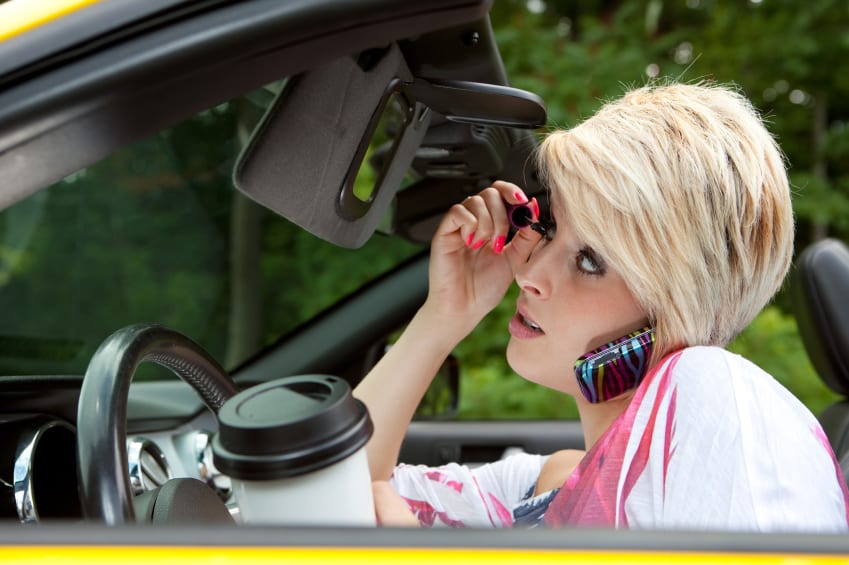Almost 40,000 people die in car accidents each year, according to the Center for Disease Control. Every 10 seconds, a victim of a car accident is treated in an emergency room for accident-related injuries. Sixteen percent of all fatal crashes in 2008 were caused by driver distraction, according to the National Highway Traffic Safety Administration.
These are some scary statistics and many of these crashes could have been prevented. To lower your chances of getting into an unnecessary car accident (or worse), here are 5 things you should NEVER do while (or, in some cases, right before) driving:
1. Fall Asleep
The U.S. National Highway Traffic Safety Administration (NHTSA) estimates that approximately 100,000 police-reported crashes annually involve drowsiness and/or fatigue as the primary causal factor. A survey by Famers Insurance reports than more than 10% of drivers admit to having fallen asleep at the wheel. Falling asleep is often referred to as the “silent killer” because it is often overlooked as the cause of many accidents. Do not drive when drowsy!
Things you can do to prevent drowsiness: stop driving and pull over to nap, switch drivers, and try to arrive before midnight because that’s when our bodies are most tired. Some people try to combat drowsy driving by opening the windows or turning on the AC, listening to the radio, and drinking caffeine. Experts, however, will not vouch for these methods, saying that these methods have not been proven to prevent falling asleep at the wheel. In fact, they could even prove more dangerous because they distract you from driving and give you a false sense of security because you keep on driving when you should really stop. Getting sufficient sleep, especially the night before a long drive, is the only way to truly prevent drowsy driving.
2. Multitask
While women, especially moms, are excellent at multitasking, no one should attempt to do too much while driving. We’ve all done it in the car — putting on mascara on the way to work, eating a burger because there’s no time to stop, etc. But, these seemingly harmless acts are distracting and can potentially lead to a crash. Pull over on the side of the road to apply make-up, check a map or anything else that diverts your attention away from the road. In the bigger scheme of things, all of these little tasks can wait until you’ve reached your destination.
3. Drink Alcohol
Research has shown that alcohol-related impairment begins long before a person reaches the legal blood alcohol concentration level (0.08) necessary to be convicted of a DUI. A 120-pound woman can reach this BAC level after just two drinks — a “drink” meaning either a shot of liquor, a 5-ounce glass of wine or one beer. At a .08 BAC level, drivers are 11 times more likely to crash than drivers with no alcohol in their system. But, recent research shows that impairment can begin after just one drink. One drink can impair your visual functioning, multitasking skills, and reaction time. So, for that reason, the only truly safe driving alcohol limit is 0.0.
4. Text
While cell phones have made communication way easier, they’re a total hazard when it comes to road safety. Texting while driving is responsible for accidents that claimed 16,141 lives between 2001 – 2007, according to the University of North Texas Health Science Center. Driving requires your full attention, and reading, writing and sending a text is distracting no matter how you put it. The Highway Loss Data Institute reported that state laws prohibiting texting while driving have not reduced the number of car crashes. The best way to avoid the temptation? Put your phone on silent, or better yet, keep it in the backseat and out of reach!
5. Get Emotional
It’s ok to be emotional, but not on the road. Never get in your car and start driving when you are in an extremely emotional state. Your mind will not be focused on the road, but on your problems and worries. Also, when a person is angry or upset, s/he becomes a much more aggressive driver, putting themselves and other drivers in danger. Take the time to compose yourself and calm down before driving off in a fit of rage.





